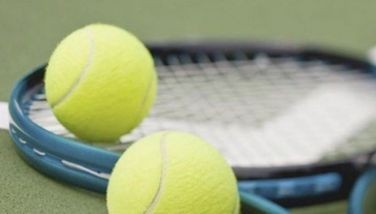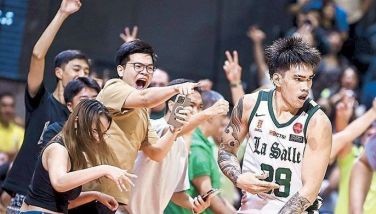Why government is involved in sports
The ruffled relationship between the Philippine Sports Commission (PSC) and the Philippine Olympic Committee (POC) and the national sports associations (NSAs), the most prominent of which and the most complicated to date in the early goings of chairman Harry Angping’s stewardship of the PSC, involves the Philippine Amateur Swimming Association (PASA), is to be expected.
The heated political rivalry surrounding the POC elections held last year, still has to cool down with some partisans not pre-disposed to moving on for the sake of the greater good. The lack of real communications between the two groups has exacerbated the situation and the absence of a so-called broker to help establish productive dialogue has forced the parties to converse via press statements and interviews.
Devoid however of the unique and additional circumstances surrounding this particular Philippine conflict, there should be no doubt that governments have, and will continue to have, great influence over professional and amateur sports, as pointed out by students and practitioners of sports like Arthur T. Johnson and James H. Frey in the book, “Government and Sport.”
This is true, for good or bad, even in countries like the United States which is generally as keeping a “hands off” policy on sports and as the main proponent of the ideal of privatization of sports, especially elite sport.
A cursory look at the history of sports in any country will make one appreciate why any government will give increasing attention to sports thus acknowledging sport’s important place in society.
As I have often stated in columns and public discussions, and as mentioned recently by sports philanthropist Manuel V. Pangilinan, sports is an effective medium for developing values. Through sports, the desired values of respect for authority and the law, equity, equality, fair play, promptness, tolerance for diversity, are taught to both practitioners and spectators. Sports help build esprit de corps within a community and produces goodwill. It helps to lift flagging spirits and national pride and is an opportunity to express a country’s sense of nation and unity.
The outstanding performance of our athletes in the 1991 and 2005 Southeast Asian Games and the victories of Manny Pacquiao, Paeng Nepomuceno, Nonito Donaire, Eugene Torre, Bata Reyes and a host of other Filipino sports heroes reinforce government’s belief in the galvanizing role of sport.
The economic meltdown in the US which has affected large parts of the globe is also creating a growing tendency towards reverse privatization: government getting involved in business thus going against traditional wisdom that private sector matters are left best to the private sector.
If such government intervention can happen in industries like banking, finance, insurance, power and energy generation and distribution and in other institutions, it is but to be expected that government will intervene in other aspects of life if such intervention will benefit the common good and if it reinforces its own vision of society, if it has one.
Sport, like any other activity, is governed by rules, regulations, a language and culture of its own. Such rules and regulations are necessary to avoid disputes and yet disputes happen. The dispute between the PSC creating its own PSC Aquatic Task Force which the PASA claims infringes on its own duties as an NSA is just one example.
Certain passages of the law creating the PSC and the rules of FINA (the international swimming federation that controls aquatic sports) and POC’s own charter have been invoked by the disputants. Certainly, someone has to be an arbiter. Who is the arbiter, if the sports bodies can’t settle their disputes? Who will settle the disputes to the parties’ satisfaction? Ultimately, after everything else fails, government and its instrumentalities like judicial and semi-judicial bodies will step in. After all, it is the basic function of government and politics to create a just and orderly society.
I have stated just two reasons why government will “intervene” in sports. One other important reason, which I will discuss in some detail next week is the matter of stewardship: government has been entrusted funds by the taxpayers and, in theory, it is the obligation of government as a good steward to ensure the resources are properly used. Government will try to ensure its proper use through the exercise of its oversight functions. More next week.
* * * *
Lasallians, friends, supporters and benefactors are reminded of the De La Salle University – Manila Alumni Homecoming which will be held on Saturday, March 7 at the 98-year-old schools’ Taft campus. The festivities start with the celebration of Mass at 4 p.m. Organizing committee chairman Bobong Velez says Saturday’s event shall be the “mother of all alumni homecomings” and the “homecoming that will end all homecomings.” See you there!
- Latest
- Trending




























